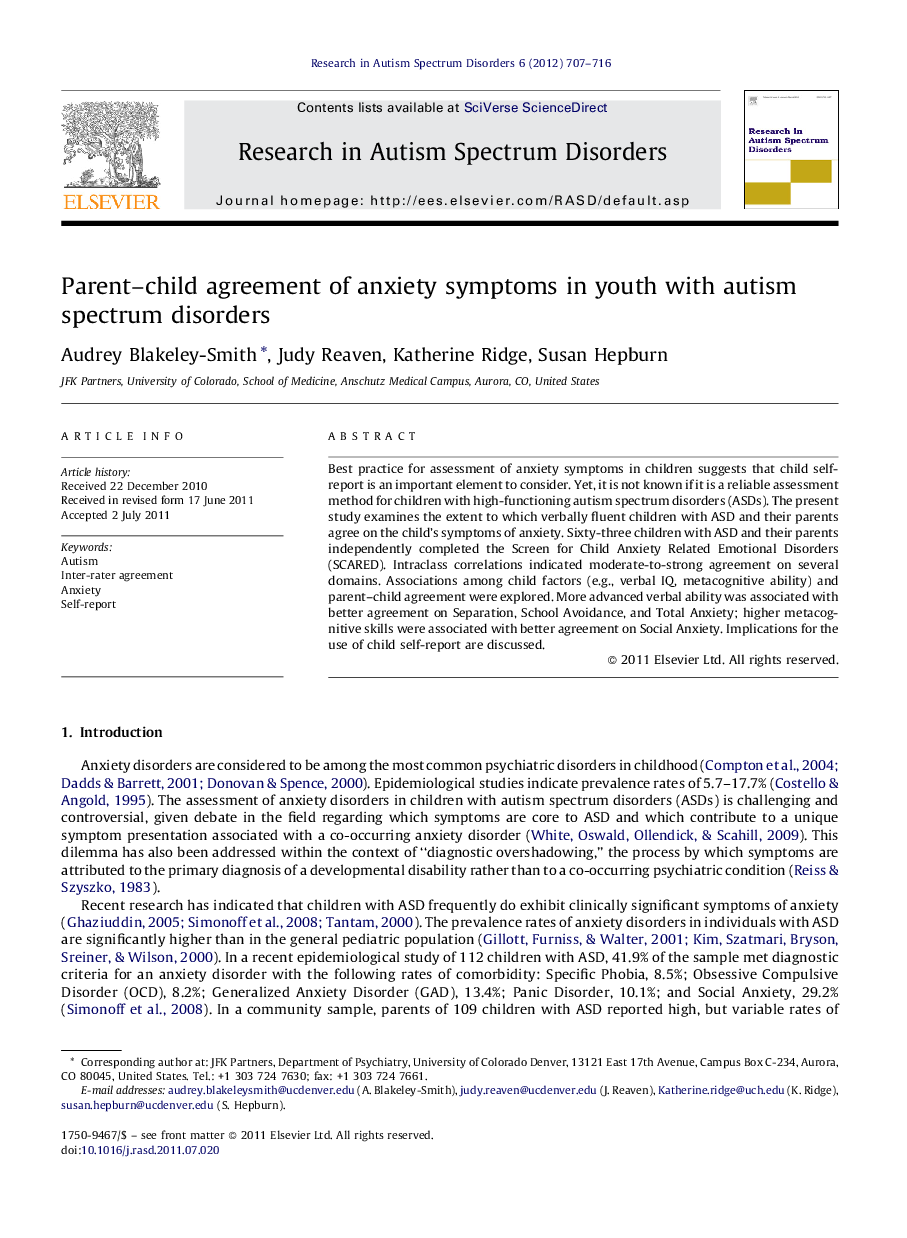| Article ID | Journal | Published Year | Pages | File Type |
|---|---|---|---|---|
| 370690 | Research in Autism Spectrum Disorders | 2012 | 10 Pages |
Best practice for assessment of anxiety symptoms in children suggests that child self-report is an important element to consider. Yet, it is not known if it is a reliable assessment method for children with high-functioning autism spectrum disorders (ASDs). The present study examines the extent to which verbally fluent children with ASD and their parents agree on the child's symptoms of anxiety. Sixty-three children with ASD and their parents independently completed the Screen for Child Anxiety Related Emotional Disorders (SCARED). Intraclass correlations indicated moderate-to-strong agreement on several domains. Associations among child factors (e.g., verbal IQ, metacognitive ability) and parent–child agreement were explored. More advanced verbal ability was associated with better agreement on Separation, School Avoidance, and Total Anxiety; higher metacognitive skills were associated with better agreement on Social Anxiety. Implications for the use of child self-report are discussed.
► Examined parent–child agreement on the SCARED. ► Sixty-three children with ASD and their parents independently completed the SCARED. ► Parent–child agreement was fair to strong and better than in a normative sample. ► Parents generally reported higher anxiety symptoms than their children. ► Studied impact of child factors (verbal and metacognitive ability) on agreement.
